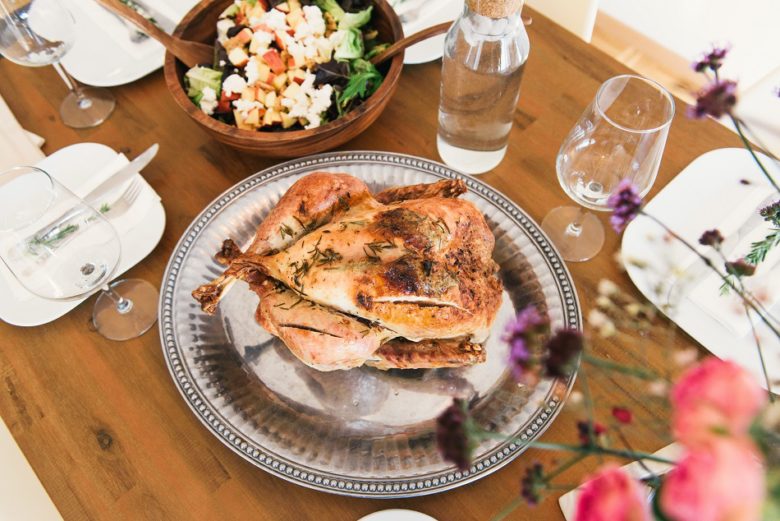
When you binge on Thanksgiving, what happens?
When you binge on Thanksgiving, what happens ?
“Thankgiving is a holiday that celebrates the ability of Americans to eat massive quantities of food.”
That may not be the official definition, but come on, that’s true, isn’t it? And most of us are fine with that. Or would be fine with that, if not for the several pounds of fat we put on over just a couple of days. How is that even possible?!
Answer: It isn’t. A two-day binge can have a profound effect on your gut microbiota, as we’ll see, but not so much on your fat stores.
In one study, college students gained just over a pound over Thanksgiving break (a couple of weeks). Of course, by itself, one pound isn’t much to worry about, but you’ll undoubtedly find someone to point out that if you ate like that all the time, you’d gain more than 28 pounds in a year!
There are 9 calories per gram of fat, so if, on a given day, we eat 3,500 calories when we only needed 2,500, the 1,000 extra calories should morph into 111 g (about a quarter of a pound) of fat.
But it doesn’t work that way. There’s a limit to the amount of calories your body can process into fat stores in a given amount of time. If you eat beyond that limit, some of the extra calories will be burned off as heat and some will end in the crapper. Weighting yourself before and after visiting the toilets after a Thanksgiving meal can be an illuminating experience. The average morning pee weighs half a pound. The average poop weighs a third of a pound. After a Thanksgiving meal, you can easily beat those numbers, and you’ll go more frequently too.
Eating a lot of carbs means storing a lot of water. Obviously, what you eat matters. If your glycogen stores are low (for example, after a day or two of low-carb eating or a couple long runs), you can eat around a pound of carbs and almost all of it will be stored as glycogen, not as fat. Carbs are usually eaten with fat and protein, though, especially on Thanksgiving, so let’s take a look at what happens when you overeat those macronutrients.
Overfeeding on protein (e.g., turkey) will cause less fat storage than overfeeding on alcohol (e.g., wine) or fat (as is plentiful in delicious pumpkin pies, not in the low-fat abominations). If you’re prone to overeating on Thanksgiving, it may be wise to load up on a bunch of turkey first, to help with appetite suppression.
Significant body fat is gained in weeks or months, not in hours or even in days. On the other hand, water weight can vary rapidly with salt and carbohydrate intake, exercise, and other factors. Eating a typical Thanksgiving meal can easily increase your body fluids, tricking you into thinking you’ve gained lots of fat. Even over the holiday season, however, not everyone gains fat, and feeling like you’ve gained weight doesn’t always mean you have.
If you overeat, your gut microbiota is going to change for the worse, especially if you binge on acellular carbohydrates (flour and sugar). Thanksgiving meals can be quite rich in those acellular carbs. Hypercaloric high-fat diets too affect the gut microbiota, causing changes in the brain areas that regulate satiety. Nobody knows the exact effect of a one-day binge, but people who tend to binge uncontrollably on Thanksgiving are more likely to binge on other days as well, and that’s where the real danger lays.
So What Should You Do?
Celebrate Thanksgiving! occasional overeating isn’t inherently unhealthy, and Thanksgiving could involve large heaps of turkey and mashed potatoes rather than three slices of pumpkin pie and two of apple pie. Again, load up on the healthy (or healthy-ish) food first, so you don’t go too crazy with the unhealthy stuff.
Finally, some form of intermittent fasting could be a good idea during the holiday season. It is neither necessary nor healthy to starve yourself after Thanksgiving, but alternating periods of eating more and periods of eating less could be a good idea if you’re watching your weight, and it could develop in you the ability to diet flexibly.
Sometimes bad food can be good for your soul, BUT not daily!

